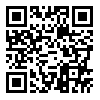مجله رویش روانشناسی از دادن گواهیهای کاغذی معذور است. لطفا تقاضا نکنید. همه گواهی ها در صفحه شخصی کاربران موجود است.
year 13, Issue 6 (summer 2024 2024)
Rooyesh 2024, 13(6): 251-260 |
Back to browse issues page
Download citation:
BibTeX | RIS | EndNote | Medlars | ProCite | Reference Manager | RefWorks
Send citation to:



BibTeX | RIS | EndNote | Medlars | ProCite | Reference Manager | RefWorks
Send citation to:
Vazirian M, Abdolmanafi V, Abbasi M, Paidarfard S. (2024). Comparing Attribution Styles, Dysfunctional Attitudes and Early Maladaptive Schemas in Normal People and People with Recurrent Major Depression. Rooyesh. 13(6), 251-260.
URL: http://frooyesh.ir/article-1-4595-en.html
URL: http://frooyesh.ir/article-1-4595-en.html
1- Master's student in general psychology, Shahid Beheshti University, Tehran, Iran.
2- Master's student in clinical psychology, Shahid Beheshti University, Tehran, Iran. ,Vahidabdolmanafi@gmail.com
3- Master's student in clinical psychology, Shahid Beheshti University, Tehran, Iran.
2- Master's student in clinical psychology, Shahid Beheshti University, Tehran, Iran. ,
3- Master's student in clinical psychology, Shahid Beheshti University, Tehran, Iran.
Abstract: (1435 Views)
The present study aimed to compare attributional styles, early maladaptive schemas, and dysfunctional attitudes between normal people and people with recurrent major depression. The research design was causal-comparative. The statistical population of this research was postgraduate students of Tehran universities. The sampling method was the Convenience judgmental Sampling method. 50 people were considered for each group. Goldberg Depression Questionnaire (1972), Attributional Styles Scale (1984), Young Schema Questionnaire (1998), and Dysfunctional Attitudes Questionnaire (1978) were used to measure the considered variables. Data were analyzed using a one-way multivariate analysis of variance. Compared to normal people, depressed people with frequent relapse scored significantly higher on the dysfunctional attitude level and in all of the early maladaptive schemas. Also, in the style of attributions, normal people significantly use stable and internal attributions for positive events, while depressed people with frequent relapse significantly use stable, internal, and global attributions for negative events. Therefore, to prevent relapse in depression, it is suggested to prioritize the use of interventions that target these cognitive structures.
Keywords: Attributional Styles, Dysfunctional Attitudes, Early Maladaptive Schemas, Depression Relapse.
Type of Article: Research |
Subject:
Clinical Psychology
Received: 2023/05/6 | Accepted: 2023/05/9 | ePublished: 2024/08/31
Received: 2023/05/6 | Accepted: 2023/05/9 | ePublished: 2024/08/31
Send email to the article author
| Rights and permissions | |
 |
This work is licensed under a Creative Commons Attribution-NonCommercial 4.0 International License. |





